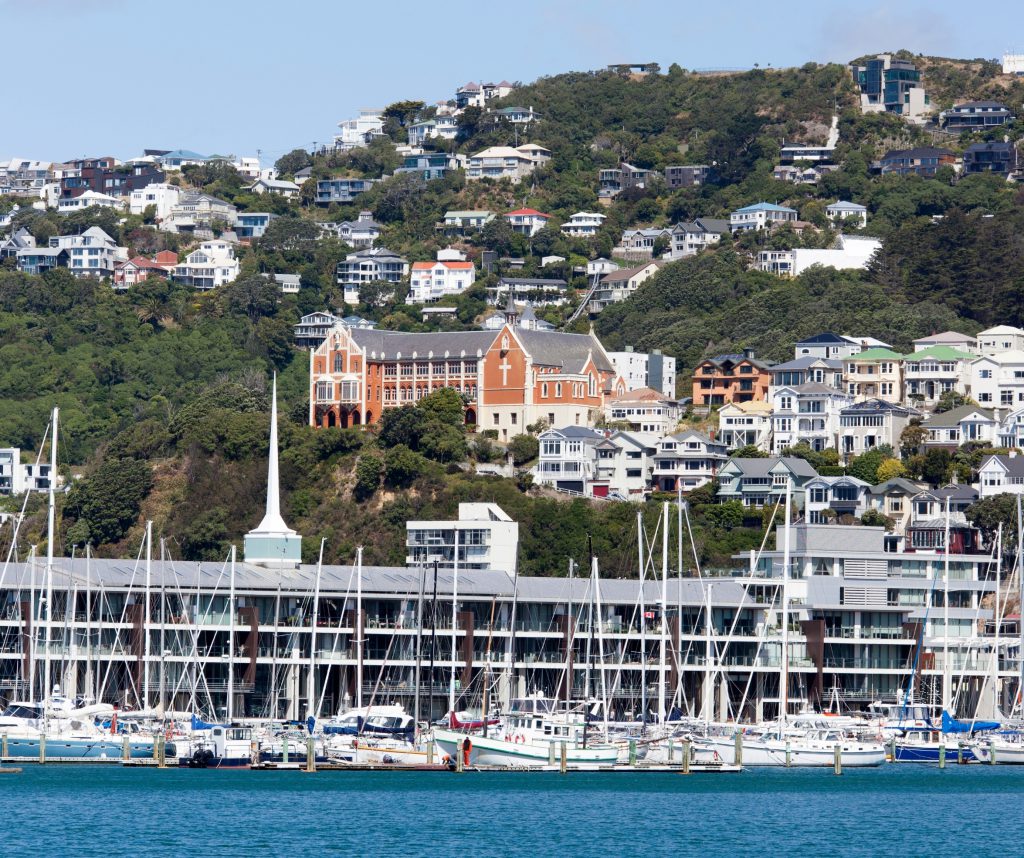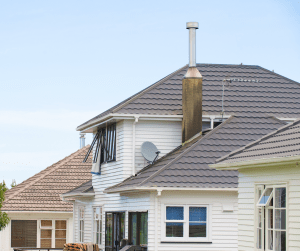The latest news for New Zealand Landlords and Tenants
Things to know when buying residential
The New Zealand real estate market is hot with residential property as seen by Trade Me Property results. Nearly 26,000 homes up for sale in the first week of December. But, what do people need to know before purchasing a property? What should you look out for, and what should you avoid?
We talk to Property Consultant and experienced Property Investor Vaughan Wilson to get the answers.
With 25 years experience investing in residential Wellington properties, as well as completing multiple large-scale renovation projects, Vaughan knows what you need to know, who you need to get involved, and what questions you need to ask before making an offer.
The Principal Director of Wilson Hurst, Director of Digital Nomad, a home-owner and landlord. Vaughan provides valuable advice to anyone interested in purchasing residential property in New Zealand.

“Don’t get emotionally connected”
25 years ago, Vaughan bought his first residential property. It was an ex-statehouse in Titahi Bay, followed by another ex-statehouse purchase in Khandallah. After recognising an opportunity next door to his Khandallah house, Vaughan purchased the neighbouring section. He then split it up into five lots of land. Two lots, he developed on and then sold. The other three, he sold to builders where they did the same. Now a homeowner and residential landlord, Vaughan’s first piece of advice when it comes to buying a home is “don’t get emotionally connected to the decision.“
Many people fall in love with a property for emotional reasons. It might be in a neighbourhood they grew up in, or it might have stained glass windows they couldn’t imagine finding elsewhere. Even if a home seems perfect, it’s a good decision to assess the numbers before you buy.
“I think the number one thing is, and this is the case for residential and this is where some people fall down, is don’t get emotionally connected to the decision. Make sure you make the decision with your head, you’ve done the math, and you know how much you’re going to outlay.”
Do the calculations
Everyone has to run the numbers before buying a home. Whether that’s working out your mortgage repayments or how much you have in your KiwiSaver for a deposit. There are several calculations to be made and some hidden costs that you’ll want to consider.
With all of Vaughan’s residential purchases, getting plans and doing calculations was important. In residential purchases where development was considered, architects and engineers would provide plans. In terms of other calculations, Vaughan’s working knowledge as a Property Consultant at Wilson Hurst helps him to complete his own analysis of the costs involved. If you require help with this, getting your own Property Consultant or Mortgage Broker is a great next step.
While Vaughan acknowledges the need to run your calculations before buying, he also understands that some things won’t show in the spreadsheet for older houses. For this reason, Vaughan recommends having a contingency which takes different possibilities into consideration – especially when looking at residential property that is on the older side.
“With these older houses you could pull a wall open and find all sorts of stuff you weren’t expecting. This could cost a lot more money to remedy so you’ve got to have a certain contingency there to allow for that.”
Another step you can take to understand the condition of the property is to get a professional builders report. This gives you an idea of how safe the home is and whether it requires any maintenance.
Know the rules
Another task to do before buying is to know the rules and regulations around building or renovating in the suburb you’re looking at. It may be a historic site like Mount Victoria where there is a preference for preserving the character of a home.
“It pays to know all the rules. So what you’re allowed to do [in terms of building], how big, how bulky, bulk and supply, that sort of thing. If you don’t know the rules, at least go and find out what they are before you buy something and then find you can’t work it.”
Some documents you might want to get your hands on to understand the rules for your residential purchase include:
A Land Information Memorandum (LIM)
This is held by the local council and contains important information about a property. While it does not show building plans submitted for council consent, it may show if the property is affected by flooding. It might also show notices and orders, or anything else the council considers relevant. You can apply online for an LIM with the residential fee being $333.25 (December, 2020).
Resource Management Act (RMA)
This legislation considers how activities affect the environment. If you plan to build onto an existing residential property or a piece of residential land, you will want to be familiar with the RMA. Both the RMA and the Building Act (2004) will tell you what situations require resource or building consent and how to get this. This Beginner’s Guide to resource and building consent processes explains more.
Even if you don’t plan to build or add on to the residential property, you never know what will change in 10 years time. You may find that the fence height is inadequate or you want to make a change that you think is minor but is actually illegal. You never know so be sure to do some homework before you make an offer.

Know the area
Knowing the area you’re buying in is as important as knowing the home. Get familiar with the whereabouts and do some research. Talk to the locals, do a drive around, and visit the local council for more information about the area.
As someone who has purchased all of their residential properties in the Wellington region, Vaughan knows a lot about buying and building in this area of New Zealand.
He knows how some of the land was historically used. He knows what the council prefers to see when it comes to building projects in certain areas.
Vaughan even tells us a story about his Uncle who planned to build on a piece of land in Wellington where it turned out he couldn’t. This is where he says “you’ve got to do your homework.” Know the area you plan to purchase in.
“My Uncle had a property which had a big chunk of land on it and it turned out that it was full of tailings from the harbour. They used to dredge the harbour and bring it up in the old rigging trucks and dump it in Khandallah (legally). And so the land and the soil was just contaminated because the harbour was contaminated back then and he couldn’t build on it because it was just mush. So you’ve got to do your homework and make sure. Because that won’t necessarily be on the District Plan.”
Every town and city has their own District Plan that helps you to understand the rules of a certain area. While it’s important to read this, Vaughan makes a good point that some things won’t always be shown.
As this may be the case, Vaughan says there are other precautions you can take to get more knowledge about an area. Specifically if you’re concerned about the soil.
“If it’s not on the District plan then you’d have to look and just size up. You’d get a surveyor, or somebody who is familiar with [the area]. They can often tell where a canyon or a valley or a crevice has been filled in and then you might want to do a geo-tech. That’s where they do a Penetrometer test to check the structural rigidity of the land which they probably have to do if they’re building on it anyway. And it’s not an expensive or time-taking job and basically, it’s very simple.”
The Penetrometer test “will tell them whether there is something wrong with the substrate of the soil and if there is then they can do a more detailed test to determine why that is the case. That doesn’t necessarily prevent you from building on it but in some cases it might mean that you’ll have to put piles down many many metres into the soil and doing that then adds a huge amount of cost to the foundation cost of what you want to build there.”
Be cautious about apartments
Some homes in New Zealand have a bad rap for being leaky. Apartments are no different and they also include other hidden costs and considerations that you should know about before buying one.
This is why Vaughan says it pays to be cautious if you want to buy an apartment. For a few reasons. Some relate to the condition of these types of properties, others relate to cost.
“I think I’d be highly cautious about investing in apartments at the moment. Brand new ones perhaps, okay. But older ones I know of a number where they’ve had huge increases in insurance and rates in the Body Corporate and some Body Corporate members aren’t even paying so the rest of the members have to foot the bill.”
“And there’s a number of apartment blocks out there, not just in Wellington but all over the country that are leaking.”
Moving on to the maintenance costs, Vaughan explains why the expenses involved with owning an apartment can often be expensive. This is why he recommends opting for a residential town house where you can.
“I think once again, once you have an apartment block, things are more expensive to maintain. They’re tall, they’ve got lifts, they’ve got all sorts of problems. I think I’d always look to houses or small blocks of town houses, something simplistic.”
If you’re interested in getting a Property Consultant involved in your buying process, Wilson and Hurst can help.
For more info, check out their website.

